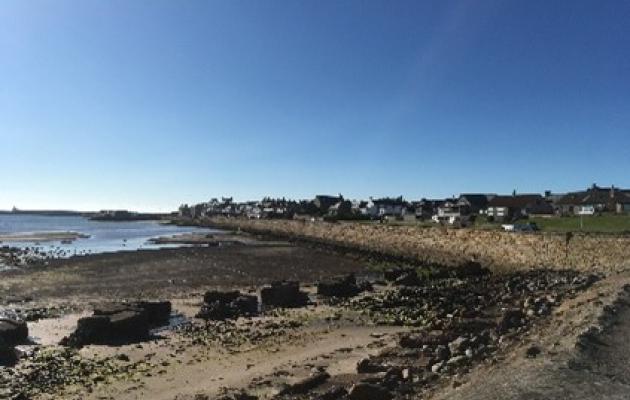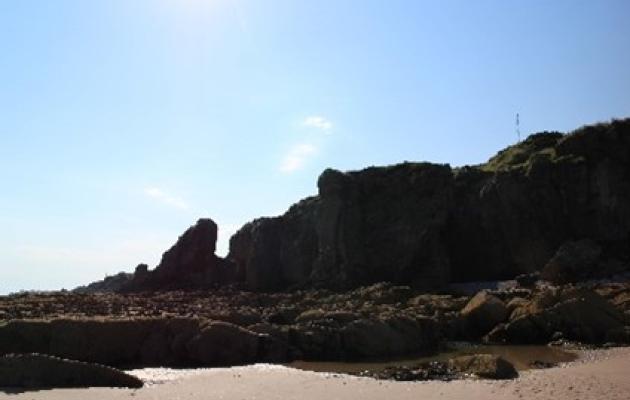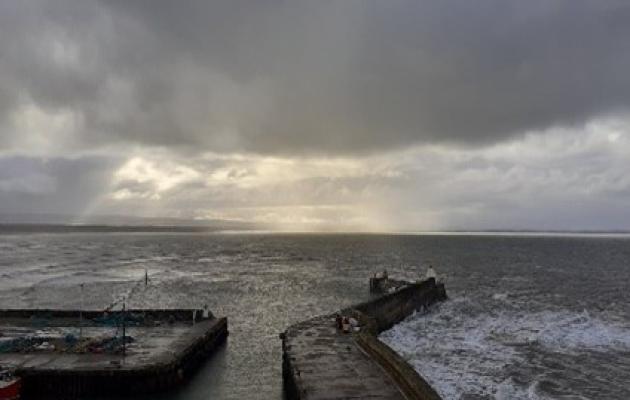
Cummingston, Moray- Catriona Mallows

Burghead, Moray – Fiona Thomson

Barbara Grieve, our Research and Finance Officer, has been conducting interviews with various people across rural and island Scotland to pull together some case studies to showcase community wealth building. She writes:
Community Transport can and does play a key role in Community Wealth Building. For a while now, rural communities across Scotland have experienced cuts to transport services. This can have a detrimental effect on smaller communities and often results in businesses struggling or closing and services becoming more centralised, often increasing isolation and out-migration. But it is not all doom and gloom: to reverse this and build more connected places, rural communities have long been providing voluntary transport solutions with a variety of different transport schemes from community buses, car sharing and car and bike hire.
Three coastal communities in Moray, Hopeman, Burghead and Cummingston came together during the first lockdown to address issues local people were having accessing health services. For a number of reasons, their local surgeries had closed and people were expected to travel to Lossiemouth, a larger town, further along the coast. For those without access to private transport, the journey time could now be up to four hours. This creates huge health inequalities as the significant travel time becomes a barrier to those without private transport accessing even basic healthcare. There is no upside to missed appointments: it can result in late diagnoses, illnesses becoming chronic and can increase isolation. For the health services, it is a waste of precious resources and can increase costs as health issues escalate.
Hopeman, Burghead and Cummingston worked together to find a solution. As was seen in numerous communities during the pandemic, many people volunteered their time and a decision was made to re-purpose the community bus to provide a service to and from the medical centre at Lossiemouth. A year into the operation and there have been over 320 journeys, connecting residents to their GPs, the hospital, opticians and dentists, as well as rehabilitation and wellbeing classes.
When a small scale, local initiative is successful, it empowers communities to consider additional opportunities that might also benefit them thus building local wealth. There are plans to grow the community bus service into one that meets all the communities’ needs which includes:
There is often a fragility to community-led initiatives due to the reliance on community volunteers. The loss of one or two key people can see a successful project, like this, stumble. So, realistically, these future ambitions require a larger fleet (there is just one bus currently) and a paid development worker to oversee driver training, compliance and the introduction of an efficient booking system.
The intangible benefits, efforts and aspirations that this service provides needs to be recognised formally through additional resources. The local health service appreciates the communities’ dedication but the community-run transport provision still remains precarious and reliant on volunteer time and energy. What would really support them, and the sustainability of this resource in the future, is funding and resourcing these community led transport solutions.
Thanks to Louise Willson and Fiona Thomson from Outside the Box, an organisation that works in partnership with people and community groups who wish to enhance their communities. Please also see Rural Wisdom - one of a number of projects Outside the Box has developed. It links up older people with younger generations within their communities, strengthening social connections, improving wellbeing and making sure older voices are heard on local issues. Finally, have a look here for PACTO – Pembrokeshire Association of Community Transport Organisations.


